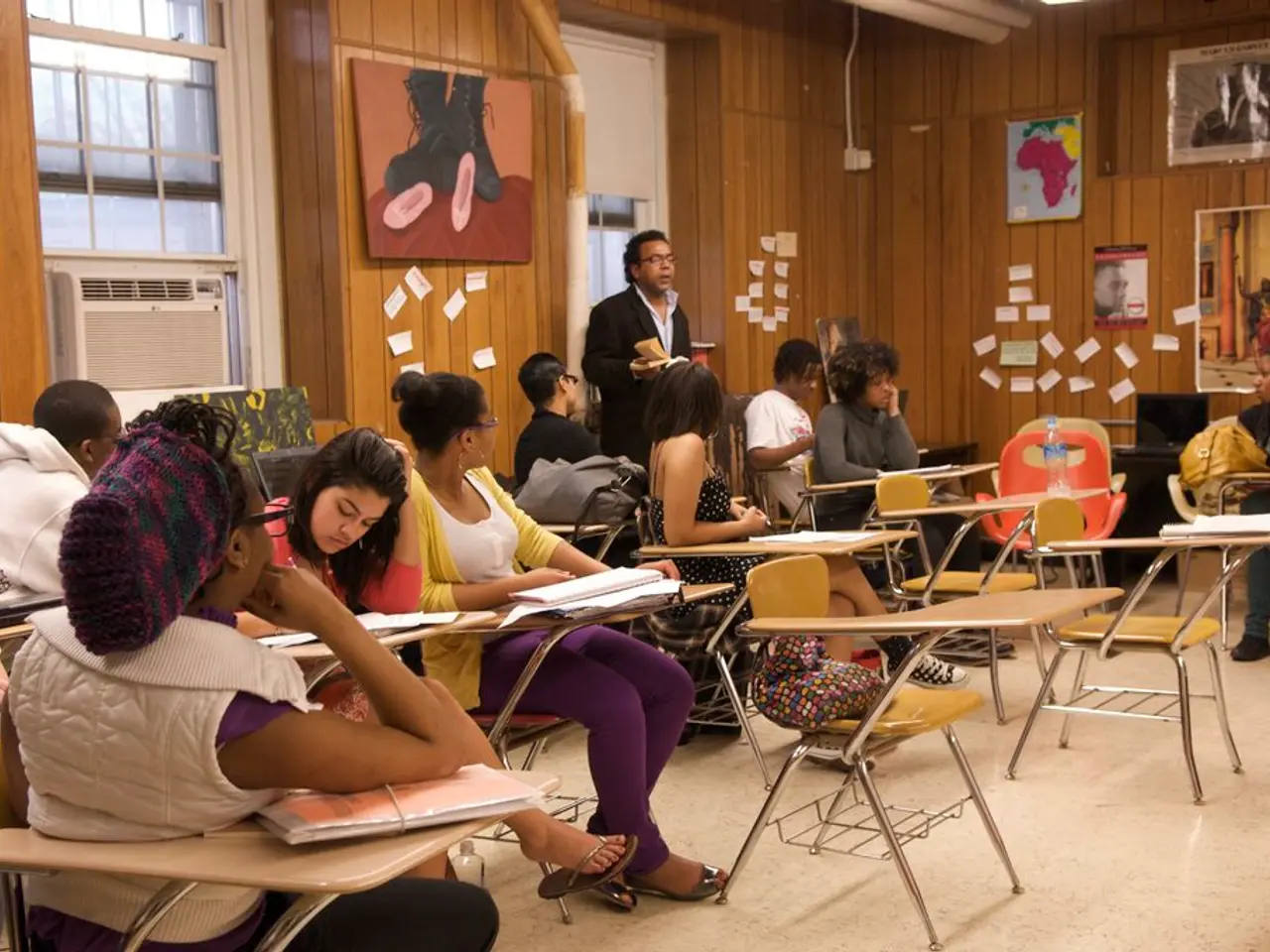Strategies for Effective Education: Uncovering 10 Productive Techniques for Academic Success
Learning effectively in a university context is essential for academic success. Here are ten tips to help you learn more efficiently, based on psychological research and practical experience.
- Break study time into small units: Instead of tackling long study sessions, break your learning into smaller chunks. This approach helps maintain focus and prevents burnout.
- Create a realistic and flexible learning plan: Outline what and when to study, helping you structure your time efficiently. A plan ensures that you make the most of your study time.
- Identify and study during your peak productivity hours: Focus on studying during the times of the day when your brain functions best. This could be during mid-morning or early evening hours.
- Choose an ideal learning environment: Find a quiet, clutter-free space with minimal distractions to enhance concentration. A suitable learning environment is crucial for efficient learning.
- Take regular breaks wisely: After 25 to 45 minutes of concentrated learning, take a short break. After two hours, take about 20 minutes. If you've been learning for four hours at a stretch, give yourself a longer break of one to two hours.
- Use breaks actively: Don't just relax during breaks. Go for a walk, exercise, do daily chores, or meet a friend for coffee. Active breaks can help refresh your mind and maintain focus.
- Take handwritten notes: Instead of typing, write your notes by hand. This method improves material retention and engagement with the content.
- Use active learning techniques: Teach others, practice by doing, or discuss topics. These methods boost retention more than passive reading or lectures.
- Stay away from distractions: Eliminate distractions like phones and social media during study sessions to preserve concentration.
- Maintain a healthy lifestyle: Get enough sleep, eat well, exercise regularly, and prioritize difficult subjects first or start with your weakest topics to tackle challenging material when your energy is highest. Physical well-being strongly supports cognitive function and memory.
These strategies aim to make your learning both more effective and efficient in university settings. Finding the right learning environment is important, and breaks aren't just important for performance but also have a positive effect on social contacts and overall well-being. Everyone learns differently, so it's essential to find an activity that brings you joy and clears your mind.
Remember, efficient learning is about building knowledge quickly, sustainably, and stress-free. Variety can help with understanding and retaining content, and practice tests and old questions are a valuable tool for preparing optimally for exams. Avoid multitasking and overthinking, and look up questions immediately if you're unsure.
Good time management, suitable learning methods, and an individually tailored learning rhythm are key to efficient learning. Even short movement breaks of 5-10 minutes between learning sessions can help you continue feeling fresher and more focused. Physical activity promotes blood circulation and enhances concentration and learning ability.
Following these tips can help you make the most of your study time, leading to better grades and a more enjoyable learning experience.
- To make education-and-self-development more efficient, consider breaking study time into small units and creating a realistic and flexible learning plan.
- For effective university learning, finding an ideal learning environment that allows for active learning techniques and minimal distractions is essential.




